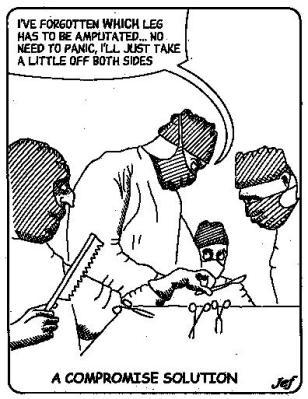I was wondering if it might be to big a jump for Americans to go from fearing sex to seeing it as a normal human activity; might not the Swedish model be a shorter step? Decriminalization is best of course, but is it to much of a shift from criminalization to make all at once?
 Proponents of the Swedish model want you to see it as a sort of compromise position; that’s how it was sold in Canada, where the Middle of the Road is practically the national symbol. But it’s actually nothing of the kind. First of all, the Swedish model has never been adopted any place where sex work was already criminalized; it always results in the criminalization of behavior that was not previously criminalized. Even if it were to be adopted in some US jurisdiction, the oft-heard claim that the model “decriminalizes the seller” is a blatant lie. Because prostitution is a misdemeanor, arrested sex workers are usually charged with whatever the cops and DAs can think of to get a more serious crime, such as “promotion of prostitution” (ie pimping) or even “sex trafficking” if the cops’ victim was working with another whore; these laws are still in place under the Swedish model (described therein as “going after the pimps and traffickers”), and because there is no lesser prostitution charge the impetus for cops to level such serious charges against ordinary sex workers is actually increased. But there’s another, more insidious and dangerous effect of the model: it establishes the legal precedent that adult women who behave in a way of which the state disapproves are not merely criminal, but incompetent. As I explained in my essay, “Treating Sex Work as Work”:
Proponents of the Swedish model want you to see it as a sort of compromise position; that’s how it was sold in Canada, where the Middle of the Road is practically the national symbol. But it’s actually nothing of the kind. First of all, the Swedish model has never been adopted any place where sex work was already criminalized; it always results in the criminalization of behavior that was not previously criminalized. Even if it were to be adopted in some US jurisdiction, the oft-heard claim that the model “decriminalizes the seller” is a blatant lie. Because prostitution is a misdemeanor, arrested sex workers are usually charged with whatever the cops and DAs can think of to get a more serious crime, such as “promotion of prostitution” (ie pimping) or even “sex trafficking” if the cops’ victim was working with another whore; these laws are still in place under the Swedish model (described therein as “going after the pimps and traffickers”), and because there is no lesser prostitution charge the impetus for cops to level such serious charges against ordinary sex workers is actually increased. But there’s another, more insidious and dangerous effect of the model: it establishes the legal precedent that adult women who behave in a way of which the state disapproves are not merely criminal, but incompetent. As I explained in my essay, “Treating Sex Work as Work”:
[The Swedish model] is solidly rooted in an archaic and sexist view of women as particularly fragile and vulnerable, and…posits that paying for sex is a form of male violence against women. This is why only the act of payment is de jure prohibited: the woman is legally defined as being unable to give valid consent, just as an adolescent girl is in the crime of statutory rape. The man is thus defined as morally superior to the woman; he is criminally culpable for his decisions, but she is not…the law has been demonstrated to increase both violence and stigma against sex workers, to make it more difficult for public health workers to contact them, to subject them to increased police harassment and surveillance, to shut them out of the country’s much-vaunted social welfare system, and to dramatically decrease the number of clients willing to report suspected exploitation to the police (due to informants’ justified fear of prosecution). Furthermore, these laws don’t even do what they were supposed to do; neither the incidence of sex work (voluntary or coerced) nor the attitude of the public toward it has changed measurably in any country (Sweden, Norway and Iceland) where they have been enacted…a Norwegian study found that banning the purchase of sex had actually resulted in an increase in coercion)…and…despite the hype, the truth is that even operations framed as “john stings” or “child sex slave rescues” end up with the arrest and conviction of huge numbers of women; for example, 97% of prostitution-related felony convictions in Chicago are of women, and 93% of women arrested in the FBI’s “Innocence Lost” initiatives are consensual adult sex workers rather than the coerced underage ones the program pretends to target…
And we haven’t even touched on things like Norway’s “Operation Homeless” (in which the cops sent letters to sex workers’ landlords, telling them they could be prosecuted as “pimps”, so as to get the women evicted); the forcible collection of “evidence” from the “crime scene” (i.e. sex workers’ vaginas); and the expulsion of student sex workers who refuse to pretend that they’re “victims”.
Tl;dr version of the preceding: “No”.
(Have a question of your own? Please consult this page to see if I’ve answered it in a previous column, and if not just click here to ask me via email.)
